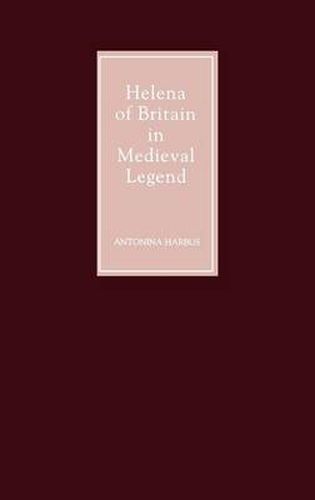Readings Newsletter
Become a Readings Member to make your shopping experience even easier.
Sign in or sign up for free!
You’re not far away from qualifying for FREE standard shipping within Australia
You’ve qualified for FREE standard shipping within Australia
The cart is loading…






St Helena, mother of Constantine the Great and legendary finder of the True Cross, was appropriated in the middle ages as a British saint. The rise and persistence of this legend harnessed Helena’s imperial and sacred status to portray her as a romance heroine, source of national pride, and a legitimising link to imperial Rome. This study is the first to examine the origins, development, political exploitation and decline of this legend, tracing its momentum and adaptive power from Anglo-Saxon England to the twentieth century. Using Latin, English, and Welsh texts, as well as church dedications and visual arts, the author examines the positive effect of the British legend on the cult of St Helena and the reasons for its wide appeal and durability in both secular and religious contexts. Two previously unpublished vitae of St Helena are included in the volume: a Middle English verse vita from the South English Legendary, and a Latin prose vita by the twelfth-century hagiographer, Jocelin of Furness. ANTONINA HARBUS is a Research Fellow in the Department of English, University of Sydney.
$9.00 standard shipping within Australia
FREE standard shipping within Australia for orders over $100.00
Express & International shipping calculated at checkout
St Helena, mother of Constantine the Great and legendary finder of the True Cross, was appropriated in the middle ages as a British saint. The rise and persistence of this legend harnessed Helena’s imperial and sacred status to portray her as a romance heroine, source of national pride, and a legitimising link to imperial Rome. This study is the first to examine the origins, development, political exploitation and decline of this legend, tracing its momentum and adaptive power from Anglo-Saxon England to the twentieth century. Using Latin, English, and Welsh texts, as well as church dedications and visual arts, the author examines the positive effect of the British legend on the cult of St Helena and the reasons for its wide appeal and durability in both secular and religious contexts. Two previously unpublished vitae of St Helena are included in the volume: a Middle English verse vita from the South English Legendary, and a Latin prose vita by the twelfth-century hagiographer, Jocelin of Furness. ANTONINA HARBUS is a Research Fellow in the Department of English, University of Sydney.